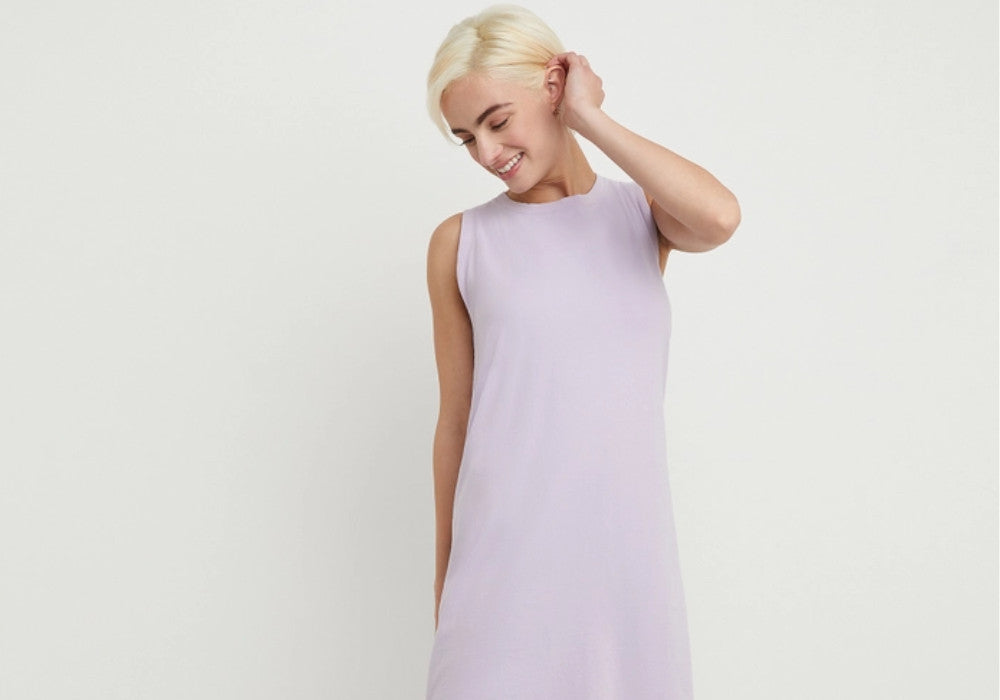
Hanes is an American fashion retailer founded in 1901 by John Wesley Hanes I and based in Winston-Salem, North Carolina, United States. The multinational clothing-retail company creates casual fashion for men, women, and children.
The fashion group Hanesbrands Inc. owns Hanes along with other clothing brands, including Hanes, Champion, Bonds, Playtex, Bali, Wonderbra, Maidenform, Berlei, L'eggs, Just My Size, and Barely There.
Hanes is an iconic and leading basic apparel brand in the United States. Champion is an innovator at the intersection of lifestyle and athletic apparel. And Bonds is setting new standards for design and sustainability.
Hanes operates more than 7,000 stores and has 51,000 employees in stores, factories, logistics, brands, and subsidiaries across 32 countries where it does business.
Hanes is committed to making the world a more comfortable, livable, and inclusive place. Its sustainability approach focuses on areas addressed by the United Nations' Sustainable Development Goals under three pillars: People, Planet and Product.
Panaprium is independent and reader supported. If you buy something through our link, we may earn a commission. If you can, please support us on a monthly basis. It takes less than a minute to set up, and you will be making a big impact every single month. Thank you!
Sustainability Rating: 4/10
Rating FAQ
Category: Clothing
For: Women, men, children
Type: Basics, dresses, activewear, underwear, loungewear, maternity
Style: Casual
Quality: Low
Prices: $
Sizes: XS-3XL, 2-16 (US), 4-18 (UK), 34-46 (EU), 4-18 (AU)
Fabrics: Cotton, lyocell, modal, viscose, polyester, nylon, spandex, acrylic, wool
100% Organic: No
100% Vegan: No
Ethical & Fair: No
Recycling: Yes
Producing countries: not transparent enough
Certifications: GOTS, RCS, FSC, Oeko-Tex
Sustainability Practices
Hanes only uses a tiny proportion of sustainable materials, such as organic cotton, or recycled materials, such as recycled polyester.
Most of the fabrics it uses are either natural without relevant certifications, such as regular cotton or linen, or synthetic petroleum-based fibers such as polyester, nylon, acrylic, and more.
Hanes also uses a small proportion of semi-synthetic fibers or regenerated cellulosic fabrics such as Tencel lyocell, modal, and viscose.
Tencel is an eco-friendly fiber made with wood pulp from certified sustainable forests. But only a tiny proportion of the materials used by Hanes are environmentally friendly and sustainable.
Hanes doesn't publish a list of all its manufacturers and processing facilities on its corporate website. It makes more than 70% of its apparel in its own facilities or those of dedicated contractors.
The 2022 Fashion Transparency Index gave Hanes a score of 27% based on how much the group discloses about its social and environmental policies, practices, and impacts.
Hanes manufactures its clothes in many East Asian countries, where human rights and labor law violations happen every day.
The American clothing retailer doesn't show any labor certification standard that would ensure good working conditions, decent living wages, health, safety, and other crucial rights for workers in its supply chain.
Hanes has a code of conduct that applies to all its suppliers and subcontractors. It assesses compliance with its Code of Conduct by informal visits or third-party audits.
Hanes doesn't use exotic animal skin, hair, fur, or angora. But it uses wool to manufacture many of its clothing pieces.
Wool is an animal-derived material, cruel and unethical. It also harms the environment by producing greenhouse gases and waste. More sustainable alternatives exist.
Sustainability Goals
Hanes has committed to reducing its GHG emissions by 50% in Scope 1 and 2 and 30% in Scope 3 (in the Purchased Goods category), by 2030 compared to 2019.
Hanes will reduce water use in its owned operations by 25%. It also aims to meet the wastewater standards of the Zero Discharge of Hazardous Chemicals initiative by 2025.
100% of its cotton will be sustainable in 2030. And in 2030, 100% of the polyester it uses in its garments will be recycled or biodegradable polyester.
Hanes will achieve zero waste across its operations and support key suppliers to do the same by 2025.
It aspires to completely phase out single-use plastic by 2025.
Its goal is for its operations to be powered by 100% renewable electricity by 2030.
Buy Here
Discover Hanes' sustainable collections at Hanes.com.
Reviews And Experiences With Hanes
Have you had (good) experiences with shopping at or the products of Hanes? Then leave us your rating below.
What We're Up Against
Multinational corporations overproducing cheap products in the poorest countries.
Huge factories with sweatshop-like conditions underpaying workers.
Media conglomerates promoting unethical, unsustainable products.
Bad actors encouraging overconsumption through oblivious behavior.
- - - -
Thankfully, we've got our supporters, including you.
Panaprium is funded by readers like you who want to join us in our mission to make the world entirely sustainable.
If you can, please support us on a monthly basis. It takes less than a minute to set up, and you will be making a big impact every single month. Thank you.






























0 comments